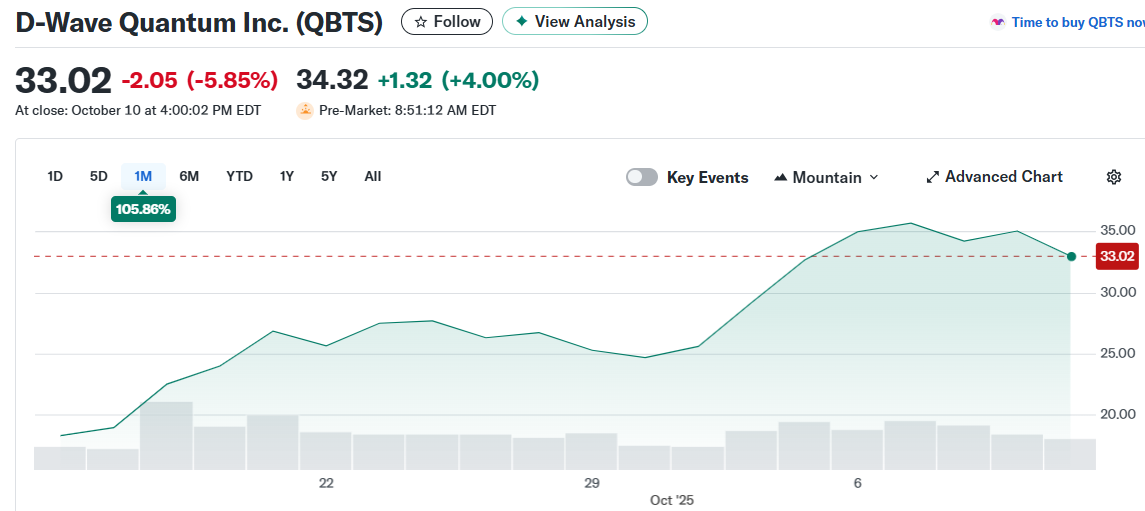TLDR
- D-Wave Quantum shares climbed 3,700% in 12 months with Q2 revenue hitting $3.1 million, up 42% year over year
- Rigetti Computing stock jumped 5,700% and secured $5.7 million in quantum system orders for 2026 delivery
- IonQ uses trapped-ion technology offering better accuracy, while D-Wave focuses on quantum annealing for optimization
- All three companies remain unprofitable with D-Wave losing $26.5 million and Rigetti losing $19.9 million in Q2
- Industry experts point to 2030 as the target year for commercial quantum computing viability
Quantum computing stocks have posted explosive gains over the past year as investors look beyond AI for the next major technology breakthrough. D-Wave Quantum and Rigetti Computing lead the rally with gains exceeding 3,000%, while IonQ offers another approach to the emerging market.
D-Wave Quantum reported second-quarter revenue of $3.1 million, marking a 42% increase from the previous year. The company now holds a market cap around $12 billion despite ongoing losses. D-Wave’s quantum annealing technology is already deployed in commercial settings, including Turkish vehicle manufacturing and Japanese drug discovery projects.

Rigetti Computing announced purchase orders worth $5.7 million in late September. The company plans to deliver two quantum computing systems during the first half of 2026. Rigetti’s strategy focuses on providing hardware components like chips and processors to other quantum platform developers.
Different Technologies Compete for Market Share
IonQ takes a trapped-ion approach to quantum computing. This method operates at room temperature and delivers better accuracy than traditional superconducting systems. The trade-off comes in processing speed, but IonQ believes superior accuracy will drive adoption.
D-Wave specializes in quantum annealing rather than general-purpose computing. This technology excels at optimization problems such as logistics networks and AI model training. The company posted an 82.46% gross margin in Q2 despite continued operating losses.
Rigetti’s Q2 revenue declined 42% to $1.8 million. The company recorded a $19.9 million operating loss during the period. Research institutions continue testing Rigetti’s technology as the company builds its market position.
Financial Challenges Persist Across Sector
D-Wave reported Q2 operating losses of $26.5 million. The stock trades at a price-to-sales ratio of 336, reflecting investor optimism about future potential. IonQ carries a $21 billion market cap with a 1.14% gross margin.
Both D-Wave and Rigetti face profitability challenges as they develop their technology. Cash burn rates remain high while revenue stays low compared to market valuations. The companies continue investing heavily in research and development.
Nvidia entered quantum computing through software development. The company created CUDA-Q to connect quantum systems with existing computing infrastructure. Data center spending is projected to grow from $600 billion this year to $3-4 trillion by 2030.
Commercial Launch Targeted for 2030
The quantum computing industry aims for commercial viability by 2030. Companies must solve accuracy and stability issues before widespread adoption can occur. D-Wave’s existing commercial applications give it an early market presence.
IonQ’s trapped-ion systems address accuracy concerns that plague quantum computing. D-Wave’s quantum annealing serves specific optimization use cases. Rigetti supplies hardware to companies building quantum platforms.
All three stocks carry high risk due to uncertain development timelines. The technology may require years or decades to reach full commercial deployment. Investors should expect extreme volatility as companies develop their products.





